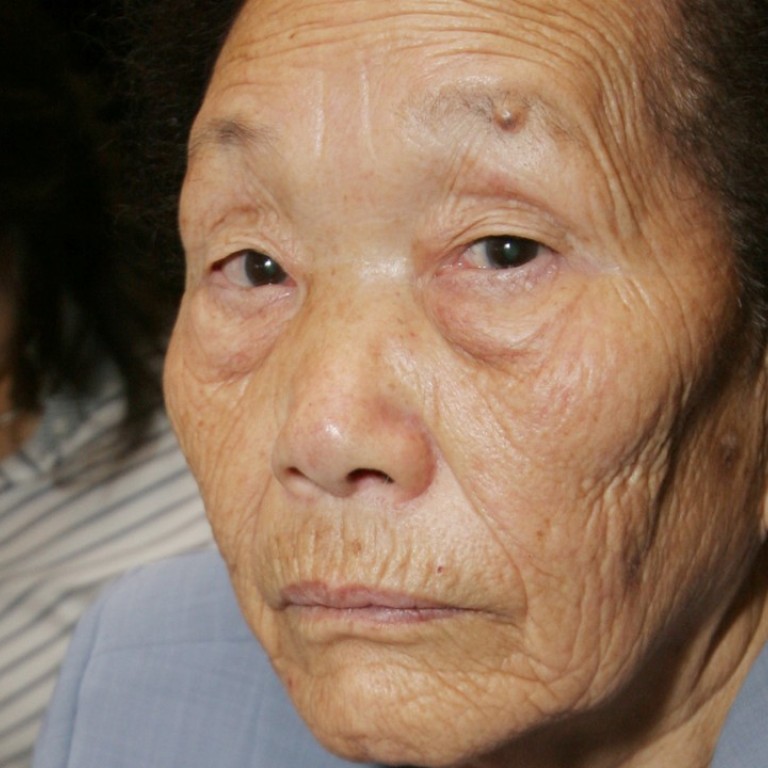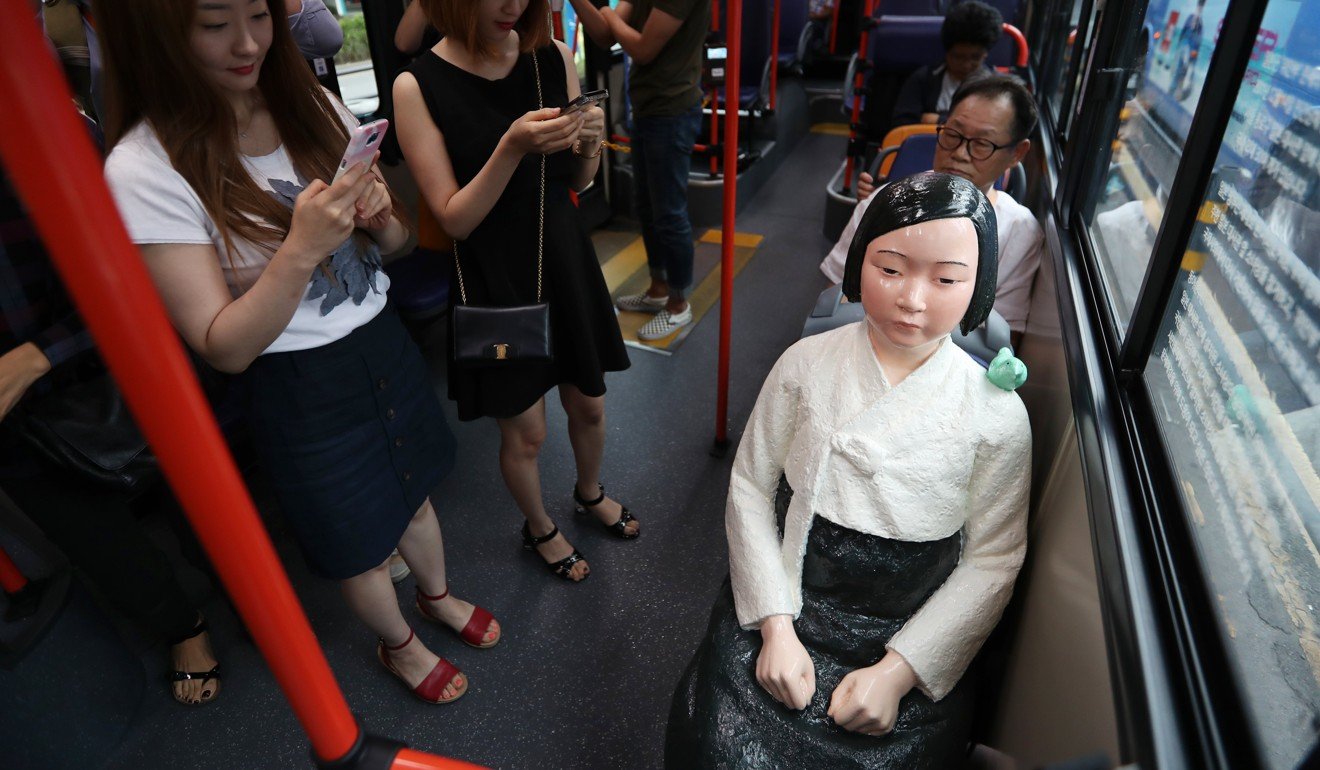
Korean ‘comfort woman’ dies in Tokyo after high-profile battle for compensation
The passing of Song Shin-do leaves 32 surviving women who were forced to work in wartime brothels
A Korean woman who was forced to work at a Japanese wartime military brothel and later lost a Supreme Court case seeking compensation from the government has died in Japan at the age of 95, a civic group said on Tuesday.
The death of Song Shin-do leaves 32 women registered with the South Korean government as surviving “comfort women”, those forced to work in wartime brothels are euphemistically known in Japan.
Japan’s 1910-1945 colonisation of the Korean peninsula and the legacy of the second world war remain highly sensitive in South Korea. The issue of “comfort women”, is especially contentious.
Song was born in Korea and said she was forced into sexual slavery by the Japanese military for seven years in China, according to the Korean Council for Women Drafted for Military Sexual Slavery by Japan, a Seoul-based support group for the women that confirmed her death.
After the war, Song moved to Japan with a Japanese soldier who later left her. After that, she lived with an ethnic Korean man in Japan, the group said.
In 1993, Song filed a lawsuit with the Tokyo District Court seeking an official apology and compensation from the Japanese government.

The case eventually went to Japan’s Supreme Court, which dismissed her appeal in 2003 on the grounds that Japan had no legal obligation to pay for her suffering because a 20-year stature of limitations had expired, according to a summary by the Columbia Law School’s Centre for Korean Legal Studies.
The South Korean civic group said Song had “suffered for seven years as a sex slave for the Japanese military”.
Some Japanese ultra-conservatives deny the women were forced to work in the brothels.
Japan says the matter of compensation for the women was settled under a 1965 treaty with South Korea.
In addition, Japan’s chief cabinet secretary at the time, Yohei Kono, apologised in a 1993 statement acknowledging authorities’ involvement in coercing the women.
Two years later, Japan created a fund to make payments to the women from donations, budgeted money for their welfare support and sent letters of apology from successive leaders.
Under a pact endorsed by Japanese Prime Minister Shinzo Abe and South Korean President Moon Jae-in’s predecessor, in 2015, Japan apologised again to the women and promised 1 billion yen (US$9 million) for a fund to help them.
The two governments agreed the issue would be “irreversibly resolved” if both fulfilled their obligations.
But Moon has said the South Korean people did not accept the deal.
Reminders of Japan’s brutal rule are inflammatory for both sides. Japan wants South Korea to remove a statue near the Japanese consulate in Busan city commemorating Korean comfort women, as well as another near the Japanese embassy in Seoul.

